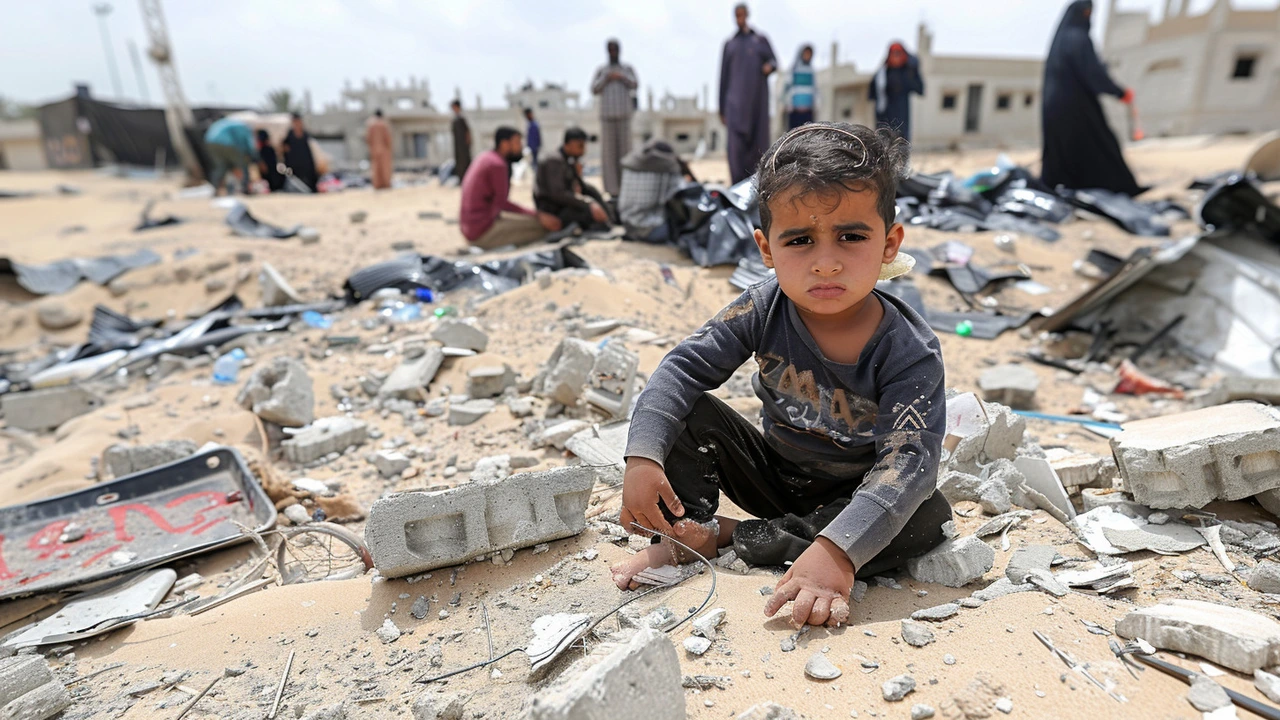Rafah: What’s Happening and Why It Matters
Rafah sits at the southern edge of the Gaza Strip, on the border with Egypt. It is a city and a busy crossing point where people, aid and goods try to move in and out. Over the years Rafah has become central to headlines during conflicts, humanitarian emergencies and border disputes. Knowing the basics about Rafah helps you understand many wider stories coming out of Gaza.
Where Rafah is and why it matters
Rafah is on Gaza’s southern tip beside the Sinai. The Rafah crossing is the only border point between Gaza and Egypt not controlled by Israel, and that gives it unique importance. When the crossing opens it allows aid convoys, medical evacuations and limited travel. When it closes, supplies back up and hospitals and shelters can run short. The city also hosts refugee camps and dense neighborhoods, so any fighting quickly affects large civilian populations.
What to watch and how to help
Look for reports on the Rafah crossing status, convoy arrivals, and humanitarian corridors. Track updates from international agencies like the UN, the ICRC and major aid groups — they often publish numbers on food, water and medical supplies. Local sources and verified social media from journalists on the ground give real-time context, but cross-check claims before sharing. Watch also for announcements from Egyptian authorities because they decide when and how the crossing operates.
Getting into Rafah is often risky. Journalists and aid teams usually rely on official permits, escorts or coordination with NGOs to move safely. Many organizations publish safety briefings and contact points for field staff. If you follow reports from professional outlets, pay attention to how information was gathered — direct eyewitness reports and satellite imagery tend to be more reliable than unverified posts.
Follow a mix of international news outlets, humanitarian agencies and reputable local reporters for a balanced view. Set alerts for “Rafah” or “Rafah crossing” to get immediate updates. If you want to help, consider donating to established relief organizations that list Rafah or Gaza programs and publish transparent spending reports. Avoid donating to unknown groups or sharing unverified fundraising links.
If you have family or friends near Rafah, use official channels and embassies to check safety updates. Avoid relying solely on social apps; official statements and aid agencies often provide clearer evacuation and aid points. For journalists, carry basic safety gear, register with your employer or local press bodies, and plan exit routes.
Rafah’s situation can change fast. Following a few reliable sources and knowing what to look for will keep you better informed and ready to act when new developments arrive. We update Rafah news as events unfold, linking to verified reports, agency briefings, and on-the-ground journalism.
Stay patient when updates are slow — logjams at the crossing and communication blackouts sometimes delay accurate reporting, but verified sources update as soon as they can. If you are sharing news, add source links and avoid speculation to help others understand the real situation. Stay safe and informed.

Global Outrage Over Israeli Strikes in Rafah: Calls for Ceasefire and Adherence to International Law
The international community is deeply shocked by the recent Israeli military strike in Rafah that resulted in the deaths of over 45 people, including children. Leaders from France and Italy have called for an immediate ceasefire and respect for international law, highlighting the tragic impact on Palestinian civilians. The U.S. emphasized Israel's right to self-defense while acknowledging the devastation.